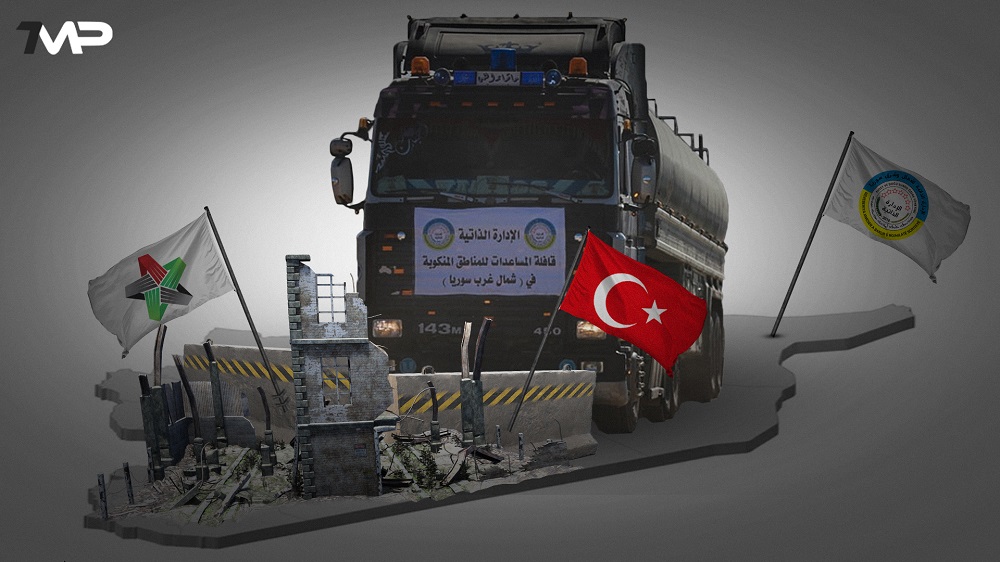Aid convoy from northern and eastern Syria is prevented from continuing their route to the earthquake-afflicted area

On the day of the devastating earthquake in the Turkish-Syrian border area, the Autonomous Administration of North and East Syria announced that it would provide rapid aid deliveries for the hardly afflicted areas in the Northwestern part of Syria. In fact, with the help of the civilian population, those responsible managed to arrange more than 80 trucks, loaded with relief supplies and fuel.
The people in these areas themselves suffer from the consequences of the civil war, which has now been going on for more than 10 years. At the same time, the region is repeatedly targeted by Turkish military offensives and attacks. Most recently, in November last year, Turkey launched an intensive air operation against the region, during which the civilian infrastructure was targeted and largely destroyed. In addition, parts, under the rule of the Autonomous Administration were also dreadfully hit by the earthquake. The al-Shahba region around Tal Rifaat in northern Aleppo and parts of Manbij or Kobane also suffered major damage, affecting many people. Nevertheless, despite all the political differences and difficulties, the Autonomous Administration decided to provide quick help to the Syrians who were severely affected.
“The first relief operation for Northwestern Syria included 33 trucks with supplies and fuel, waiting to cross the Umm Jaloud border crossing,” according to Jawan Mulla Ibrahim from the Autonomous Administration’s media department, indicating that more relief operations will follow. However, the urgently needed aid cannot arrive currently in Northwestern Syria, although the areas hit by the earthquake have been largely abandoned by the international community despite promises of aid and assistance. The aid convoy has been held up at the border crossing for two days now. Mulla Ibrahim said in this regard: “We have received information that some armed opposition factions threatened those groups who tried to receive aid from the Umm Jaloud border crossing”. This refers to groups organized in the Syrian National Army (SNA), a military alliance of opposition forces that was founded under Turkish leadership and is mainly funded and armed from Ankara.
A source from the Jindires Municipal Council administration, who preferred to remain anonymous for security reasons, revealed that the responsible bodies on the ground had a great desire to accept the aid convoy from the self-administration areas. In addition, the much-needed help from the international community so far failed to materialize. But for reasons that are still unknown, the Turkish side of the administration is said to have prohibited these deliveries.
Mulla Ibrahim did not understand this seemingly political decision and attitude. “The position of the Autonomous Administration in assisting our Syrian people is clear and public. We consider assisting in a national and humanitarian duty, but unfortunately, the opposite side does not take the same approach,” said Mulla İbrahim.
But another example shows that humanitarian aid can work despite political differences. An aid convoy consisting of 50 trucks from northern and eastern Syria is due to arrive in Aleppo soon. The Syrian government of the ruler Bashar al-Assad accepted the aid deliveries for the devastatingly affected Aleppo. “We are ready for any help,” said a Syrian official.
In North and East Syria, there is a great willingness for humanitarian aid and the safe transport of relief supplies: „The Autonomous Administration is now ready to act as a transit area for relief supplies and we continue to commit ourselves to ensure the protection of humanitarian convoys so they will arrive to the affected Syrians in the Northwest of the country,” said Mulla Ibrahim.
While the people in northwestern Syria have to endure the cold, the political stance of those responsible in the areas occupied by Turkey is more than questionable in this situation.
